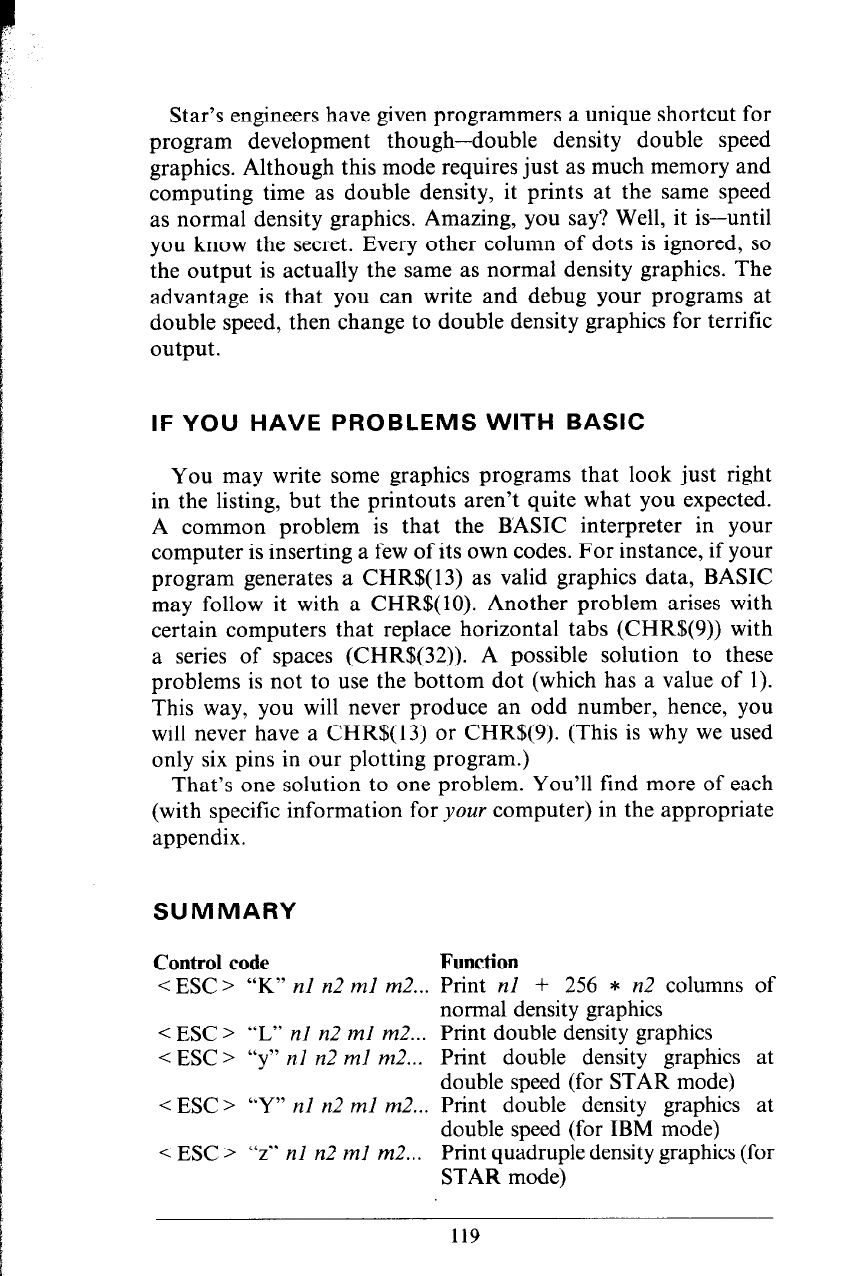
Star’s engineers have given programmers a unique shortcut for
program development though-double density double speed
graphics. Although this mode requires just as much memory and
computing time as double density, it prints at the same speed
as normal density graphics. Amazing, you say? Well, it is-until
you know the secret. Every other column of dots is ignored, so
the output is actually the same as normal density graphics. The
advantage is that you can write and debug your programs at
double speed, then change to double density graphics for terrific
output.
IF YOU HAVE PROBLEMS WITH BASIC
You may write some graphics programs that look just right
in the listing, but the printouts aren’t quite what you expected.
A common problem is that the BASIC interpreter in your
computer is inserting a few of its own codes. For instance, if your
program generates a CHR$(13) as valid graphics data, BASIC
may follow it with a CHR$(lO). Another problem arises with
certain computers that replace horizontal tabs (CHR$(9)) with
a series of spaces (CHR$(32)). A possible solution to these
problems is not to use the bottom dot (which has a value of 1).
This way, you will never produce an odd number, hence, you
will never have a CHR$( 13) or CHR$(9). (This is why we used
only six pins in our plotting program.)
That’s one solution to one problem. You’ll find more of each
(with specific information for your computer) in the appropriate
appendix.
SUMMARY
Control code Function
< ESC > “K” nl n2 ml m2... Print nl + 256 * n2 columns of
normal density graphics
< ESC > “L” nl n2 ml m2... Print double density graphics
< ESC > “y” nl n2 ml m2...
Print double density graphics at
double speed (for STAR mode)
< ESC > “Y” nl n2 ml m2... Print double density graphics at
double speed (for IBM mode)
-C ESC > “z” nl n2 ml m2...
Print quadruple density graphics (for
STAR mode)
119


















